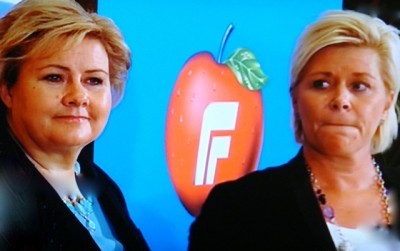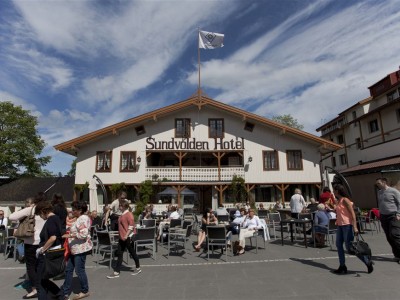Government talks got underway this week at an historic hotel outside Oslo, with the Conservative and Progress parties trying to reconcile their differences on a long list of issues. They also need to agree on how many ministerial posts their new two-party government will have and who will hold them. Few of the candidates have any government experience, adding to the challenges.

Prime Minister-elect Erna Solberg has government experience herself, after serving as a minister in a center-right coalition government just before the current left-center coalition took over in 2005. The only other ministerial candidate from the Conservatives with previous ministerial experience is Børge Brende, who’s among those mentioned as a possible new foreign minister. None of the Conservatives’ other leading candidates for ministerial posts including deputy party leaders Jan Tore Sanner (possible new trade minister) and Bent Høie (possible new health minister) or politicians such as Ine Marie Eriksen Søreide (defense or foreign minister) and Monica Mæland has government experience.
Nor do any of the Progress Party politicians who might wind up with as many as eight ministerial posts. They include Progress Party leader Siv Jensen, who’s widely tipped to take over as finance minister, and prominent Members of Parliament including Anders Anundsen (possible justice minister) and Ketil Solvik Olsen (possible oil minister).
‘No decisions yet’
Jensen told reporters that no decisions had been made on which of the two parties will have political leadership over which ministries. She and Solberg also have a lot of negotiating to do on the government declaration they must draft over the next two weeks. That will reveal how they intend to tackle issues from how much oil money they’ll use in the state budget, to how it will be spent. They’re setting priorities now, along with the framework for how their government, with agreed support from Norway’s two other non-socialist parties, will rule.
Varying views on specifics of how much foreign aid Norway should offer, for example, or how rural real estate and agricultural land should be regulated may well wind up being debated and settled in Parliament. Many policies remain literally “out in the blue” (the colour associated with non-socialists in Norway), since very little information on the course of negotiations has been revealed. Confusion was running high by Wednesday over just how the new government’s asylum policies will function, for example, with no firm answers available yet.

The talks are being held at the Sundvolden Hotel about an hour’s drive northwest of Oslo. It’s the hotel that took in survivors of the massacre on the nearby island of Utøya, during the terrorist attacks of July 22, 2011, and that’s not lost on party leaders Erna Solberg and Siv Jensen.
“The fact that the hotel made an extra contribution during one of our nation’s biggest crises just means we have even greater respect for the job we’re doing now,” Solberg said as the talks started at Sundvolden on Tuesday. She said her party, the Conservatives, has a long tradition of gathering at Sundvolden for meetings and seminars, and Jensen, of the Progress Party, said its choice as venue for the government talks was approved by many of those who were most affected by the attacks.
Not everyone was pleased with the choice, though, with Dagbladet commentator Marte Michelet writing that “the place we all connect with Utøya survivors will now also be connected with the Progress Party’s first government declaration. Ugh.” Trond Blattmann, head of the national survivors’ support group, told newspaper Aftenposten, however, that the hotel is “excellent, with good food and service. Beyond that we don’t have any opinion. The survivors’ group can’t have opinions on everything.”
Cecilie Laeskogen, who operates the hotel with her husband and experienced a decline in business after the attacks, was pleased the government negotiators chose Sundvolden. “I hope we get the opportunity to build up more positive associations tied to Sundvolden Hotel after this.”
newsinenglish.no/Nina Berglund

